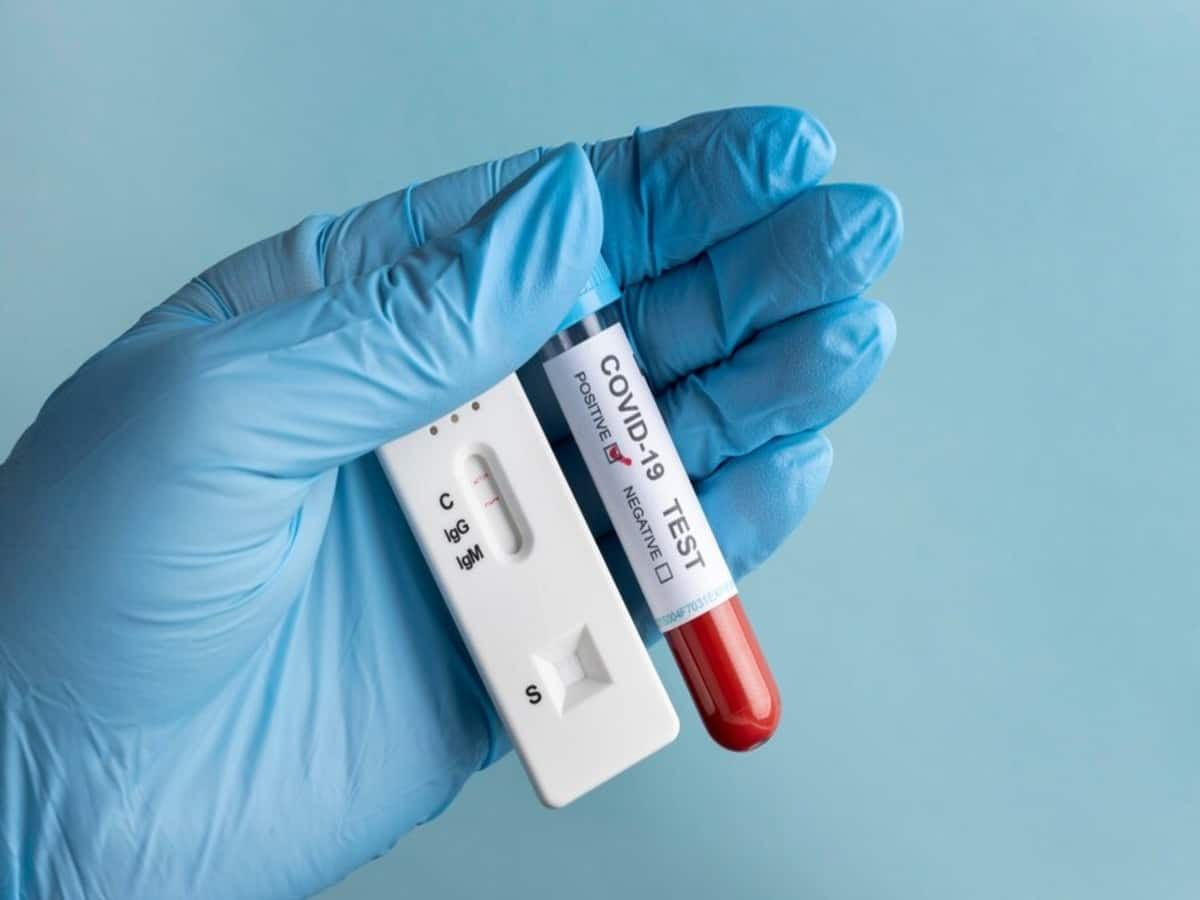Share this @internewscast.com
The likelihood of detecting the protein was about ‘twice as high’ in people who had been ‘severely ill’ and required hospitalisation than those who were not. The detection was also higher in the blood of people who were reportedly ‘very sick’ but not hospitalised.
In the last four years, there has been a great amount of interest in Covid-19 research, led by the devastating pandemic that claimed millions of lives globally. An infection of the lungs and the respiratory system, the coronavirus has been understood to pose great threat to other organs in the body, including the brain. In many people, the consequences of the infection have been severe, haunting them for months after their apparent recovery. Now, new findings shed light on just how gripping and tenacious Covid infection can be. According to research from UC San Francisco, ‘pieces’ of the Covid virus can stay in the blood and tissue for almost two years after the initial illness has vanished. This discovery claims to offer clues about the mystery surrounding post-Covid health issues.
The Virus Is Not Fully Cleared
According to a report in The Mercury News — a morning daily published in San Jose, California, in the San Francisco Bay Area — the research suggests why the virus is not always ‘fully cleared’ after the initial infection, even when people are not contagious. It aims to find an association with long Covid or post-Covid conditions which, according to the Centers for Disease Control and Prevention (CDC), is defined as signs, symptoms, and conditions that continue or develop after acute Covid-19 infection. The definition was developed by the Department of Health and Human Services (HHS) in collaboration with CDC and other partners. People call long Covid by many names such as ‘long-haul Covid’, ‘post-acute Covid-19’, ‘long-term effects of Covid’, and ‘chronic Covid’.
Role of Antigens
Per the new research, it is not yet known if ‘small viral proteins called antigens’ cause long Covid. But, on the basis of the new discovery, the UCSF team is reportedly conducting clinical trials of ‘potential therapies’ that could attack the hidden pathogen. Dr Timothy Henrich, professor of medicine at UCSF who co-authored the research, has been quoted as saying: “This can be a persistent infection for some people. We are concerned this could be leading to, at least in part, some of the long Covid symptoms that people have been experiencing.”
What May Be Causing Long Covid?
There have been three potential reasons as to why some people are continuing to battle long Covid symptoms, after they have been given a clean chit and declared Covid-free:
- The hidden virus pieces constantly provoke the immune system.
- Covid infection triggers an autoimmune response and the body begins to attack itself.
- Even after it has fought the infection, the immune system forgets to turn off.

How The Research Was Conducted
During the research, scientists reportedly used an ‘ultra-sensitive’ blood test from 171 people who had been infected with Covid. They found pieces of the viral ‘spike’ protein that persisted up to 14 months after the infection. These viral proteins were identified in 7 per cent to 14 per cent of the patients. According to the experts, the likelihood of detecting the protein was about ‘twice as high’ in people who had been ‘severely ill’ and required hospitalisation than those who were not. The detection was also higher in the blood of people who were reportedly ‘very sick’ but not hospitalised.
In fact, in a second study involving the tissue samples, traces of the virus were found ‘up to two years’ after infection, hiding in ‘connective tissue where immune cells are located’. Dr Henrich explained that patients were not infectious because the virus was not in the respiratory tract, from where it could easily spread by coughing or sneezing. Instead, there seems to be “seeding of deeper tissue after the initial infection, that may persist over a long period of time”.












